MercoPress. South Atlantic News Agency
Tag: Mario Draghi
-
Friday, June 15th 2018 - 10:28 UTC
ECB will stop its bond-buying scheme, €30bn a month, next December
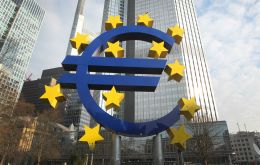
The European Central Bank (ECB) has confirmed it will end a huge program to stimulate the Euro-zone economy in December. The ECB will stop its bond-buying scheme, worth €30bn a month, despite a recent slowdown in the bloc's recovery.
-
Wednesday, October 11th 2017 - 14:27 UTC
World Bank admits millions of jobs will be automated and urges investments in “human capital”
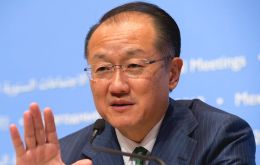
The world is on a “crash course” as people's hopes collide with a future in which millions of jobs are automated, the World Bank chief has said. Jim Yong Kim said policymakers should take action by investing in education and health. The World Bank president spoke in New York ahead of the group's annual meeting in Washington DC this week.
-
Wednesday, August 30th 2017 - 08:14 UTC
Euro at its strongest against the US dollar for the first time since 2015
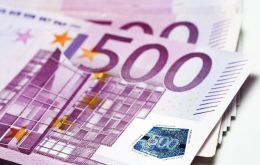
The Euro has hit US$1.20 for the first time since January 2015 as the prospect of a US interest rate rise recedes. Hurricane Harvey's impact has led analysts to assume the US central bank will not want to risk curbing economic growth and fears over North Korea's activities have unnerved investors.
-
Friday, October 21st 2016 - 08:15 UTC
Euro central bank leaves rates and stimulus program unchanged
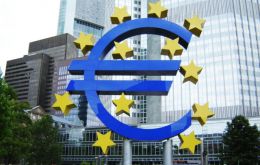
The European Central Bank left its key interest rates and its bond-buying stimulus program unchanged on Thursday as it seeks more data on the strength of Europe’s modest economic recovery. The decision came at a meeting of the bank’s 25 member governing council at its headquarters in Frankfurt, Germany.
-
Friday, September 9th 2016 - 11:12 UTC
Dragui leaves monetary policy unchanged; calls on Euro zone countries to unleash fiscal stimulus
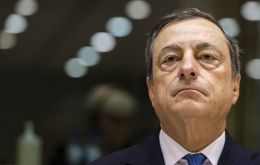
The European Central Bank made no changes to its current monetary policy on Thursday, leaving interest rates unaltered and taking no decision on whether to further stimulate the Euro-zone economy. The ECB’s governing council left the main refinancing rate at zero percent and the deposit rate at -0.4%, as expected.
-
Friday, April 22nd 2016 - 08:16 UTC
Draghi defends ECB easy money policy despite sharp criticism from Germany
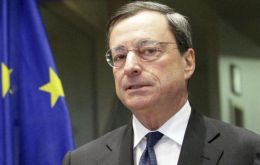
European Central Bank President Mario Draghi brushed off German criticism of his ultra-loose monetary policy on Thursday and vowed to use all the tools at his disposal for “as long as needed.” He said the ECB's policy was working, which helped boost the Euro.
-
Tuesday, January 26th 2016 - 08:54 UTC
ECB Dragui insists his policies will help raise inflation, currently at 0.2%

European Central Bank President Mario Draghi has fought back against critics, insisting the bank's policies will help to raise inflation. Eurozone inflation is currently 0.2%, way below the ECB's target of near 2%. But Mr Draghi insisted that the central bank would meet its obligations.
-
Friday, October 23rd 2015 - 08:35 UTC
Concerns over Euro low inflation; ECB plans to re-examine stimulus program
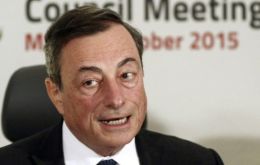
The European Central Bank (ECB) says it will “re-examine” its €1.1 trillion quantitative easing (QE) stimulus program at its December meeting. It has embarked on a scheme of bond purchases at €60bn per month designed to bring Euro zone inflation back up.
-
Saturday, September 12th 2015 - 09:51 UTC
Germany warns global economy faces financial bubble: too much central banks stimuli
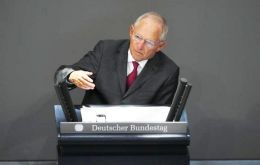
The global economy faces a financial bubble from central banks pumping cash into economies, Germany's finance minister has warned. The comments come after the European Central Bank (ECB) said it would extend its stimulus program if needed.
-
Monday, July 6th 2015 - 07:34 UTC
Euro zone to hold emergency summit to discuss Greek referendum 'no'

Euro-zone nations will hold an emergency summit on Tuesday to discuss the Greek referendum “No” result after the German and French leaders called for a meeting, EU president Donald Tusk said. The special meeting comes as Brussels reels with the implications of what the head of the Euro-group of finance ministers from the 19-country block, Jeroen Dijsselbloem, called a “very regrettable” decision.
